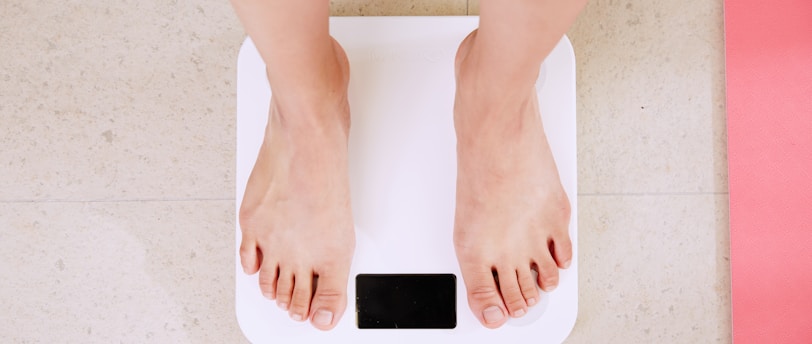Weight Loss After 40: Why It's Harder and What You Can Do About It.
Aging isnt fun and its worse when we feel stuck with a body that we don't like. Where did those extra pounds even come from!? Learn more about why we gain weight as we get older and how to end the struggle for good!


As we age, our bodies undergo many changes, including a slowdown in metabolism, loss of muscle mass, and hormonal shifts. These changes can make it more difficult to lose weight, particularly for women over the age of 40. If you've been struggling to shed those extra pounds, you're not alone. In this blog, we'll explore why weight loss becomes more difficult after 40 and provide some tips to help you achieve your goals.
Slowing Metabolism
Metabolism is the process by which your body converts food into energy. As we age, our metabolism slows down, which means that our bodies burn fewer calories at rest. This slowdown is due in part to the loss of muscle mass that occurs as we age. Muscle is more metabolically active than fat, so the less muscle we have, the fewer calories we burn at rest.
Hormonal Shifts
Another factor that can make weight loss more difficult after 40 is hormonal changes. For women, the menopause transition can lead to a decrease in estrogen levels, which can cause weight gain, particularly around the belly area. Additionally, changes in cortisol levels, which can be caused by stress, can also contribute to weight gain.
Loss of Muscle Mass
As mentioned earlier, the loss of muscle mass that occurs with age can make it harder to lose weight. This is because muscle tissue burns more calories than fat tissue. Additionally, as we age, our bodies become less efficient at using the calories we consume. This means that we may need to eat fewer calories to achieve the same weight loss results that we would have seen when we were younger.
Tips for Weight Loss After 40
Balanced Nutrition: Eating a balanced diet that includes plenty of fruits, vegetables, lean proteins, and whole grains can help you lose weight and maintain a healthy weight. Avoid highly processed foods and sugar, which can contribute to weight gain.
Moderate Physical Activity: Incorporating moderate exercise into your daily routine can help you build muscle mass and burn calories. Walking, swimming, cycling, and yoga are all great options.
Stress Reduction: Chronic stress can cause hormonal changes that contribute to weight gain. Finding ways to manage stress, such as meditation, deep breathing, or spending time in nature, can help you maintain a healthy weight.
Using Vitamins to Supplement a Healthy Diet
In addition to a healthy diet and exercise, taking vitamins and supplements can help support weight loss after 40. Some vitamins and supplements that can be beneficial include:
Vitamin D: Vitamin D deficiency has been linked to weight gain and obesity. Taking a vitamin D supplement can help support healthy weight loss.
Calcium: Calcium plays a role in fat metabolism, and a deficiency can contribute to weight gain. Taking a calcium supplement can help support healthy weight loss.
Probiotics: Probiotics can help improve gut health, which has been linked to healthy weight management. Incorporating probiotic-rich foods, such as yogurt or kefir, or taking a probiotic supplement can be beneficial.
Weight loss after 40 can be challenging, but it's not impossible. By eating a balanced diet, incorporating moderate exercise, managing stress, and taking vitamins and supplements to support healthy weight loss, you can achieve your weight loss goals and maintain a healthy weight as you age. Remember to be patient and kind to yourself throughout the process, and don't hesitate to seek support from a healthcare professional if you need it.
